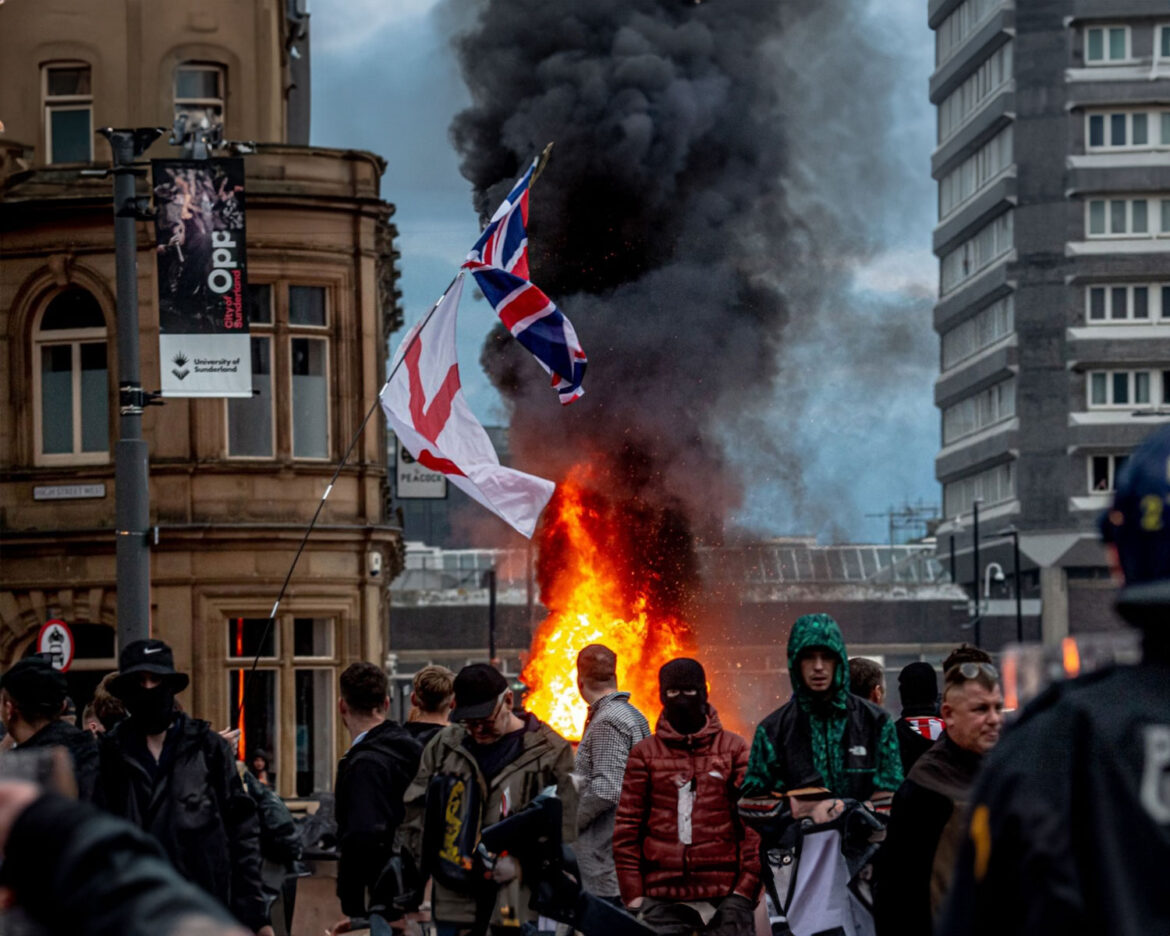A recent survey by the Muslim Women’s Network has revealed that three-quarters of Muslims in the UK are now fearful for their safety following a series of far-right riots. This marks a significant increase from just 16 percent who felt unsafe prior to the violence, underscoring a growing sense of anxiety within the Muslim community.
The unrest erupted after a mass stabbing at a youth club in Southport on July 30, which tragically claimed the lives of three young girls and left several others injured. Misinformation quickly spread on social media, falsely accusing a Muslim or an asylum-seeker of the attack. It was later confirmed that the alleged attacker was 17-year-old Axel Rudakubana, a Cardiff-born youth.
The riots rapidly escalated, with mosques across the country becoming targets of violence. In Liverpool, the Abdullah Quilliam Mosque became a focal point, where two Muslim women expressed their concerns during an interview with Sky News. Lila Tamea, a 26-year-old student, voiced her fears: “There was almost a sense that the police aren’t going to protect us. It was really important that there was that show of solidarity from not just the Muslim community, but also from the non-Muslim community who came out that Friday to defend the mosque.”
Amina Atiq, a 29-year-old poet, shared her distress over the situation: “I felt as if it was not fair that we didn’t get a chance as a Muslim family to grieve for the three little girls. Because soon after that, we felt as if we were more suspect to that attack.”
Baroness Shaista Gohir, CEO of the Muslim Women’s Network, highlighted the rise in hate crimes over the past decade and criticized current strategies as outdated. She called for stronger hate crime legislation with a clear definition of ‘hostility’ and emphasized the importance of reporting incidents, particularly by Muslim women. “What’s really worrying me is when women are calling up saying, ‘we were abused, and we were with our children,’” Gohir noted.
In response to the increasing fear and violence, the charity is establishing a helpline to support those affected and to encourage more victims to come forward.



